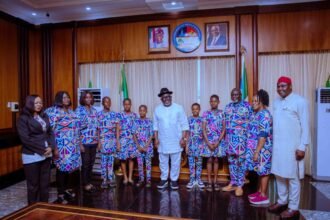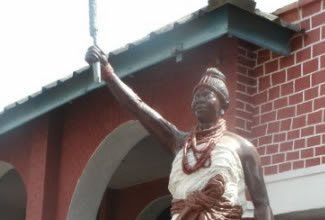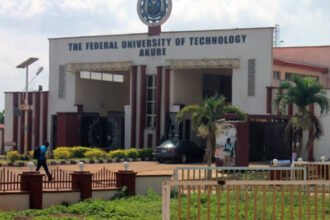The recent passing of former President Muhammadu Buhari has plunged the nation into a state of reflection and introspection. As Nigeria comes to terms with the loss of one of its most polarizing leaders, attention has turned to various facets of his governance — particularly in the education sector, where his administration both raised expectations and left lingering concerns.
According to a report made by Educa.ng, Buhari’s eight-year administration made bold financial commitments to education, backed by a substantial cumulative investment of ₦6.798 trillion. These figures reflect a steady increase in yearly budgetary allocations, beginning with ₦369.6 billion in 2016 and culminating in a record ₦2.05 trillion by 2023.
Budget Breakdown Over the Years:
-
2016: ₦369.6 billion
-
2017: ₦448.4 billion
-
2018: ₦605.8 billion
-
2019: ₦620.5 billion
-
2020: ₦671.07 billion
-
2021: ₦742.52 billion
-
2022: ₦1.29 trillion
-
2023: ₦2.05 trillion
This upward trend in funding reflected what some observers described as Buhari’s commitment to revitalizing Nigeria’s deteriorating education infrastructure. Several projects were initiated to enhance access to learning opportunities, with strategic focus placed on both conventional and specialized education.
However, critics argue that these financial commitments fell short of their intended impact. The average percentage of the national budget allocated to education during Buhari’s administration hovered between 4.95% and 10.8%, far below the UNESCO-recommended 15–20%. This budget shortfall became a rallying point for stakeholders who felt the sector was being rhetorically prioritized but practically sidelined.
Establishing New Institutions: Ambition Meets Expansion
Despite criticism, Buhari’s administration made historical strides in expanding Nigeria’s educational network. Over 37 new institutions were established, cutting across universities, polytechnics, colleges of education, and secondary-level science and technical colleges.
Some of the most prominent institutions created include:
-
Federal University of Transportation, Daura (Katsina)
-
David Nweze Umahi Federal University of Medical Sciences, Uburu (Ebonyi)
-
Army University, Biu (Borno State)
-
Nigerian Maritime University, Okerenkoko (Delta State)
-
Federal University of Health Technology, Otukpo (Benue)
-
Aerospace University, Abuja
-
Air Force Institute of Technology, Kaduna
Other notable additions were the Federal Polytechnic, Ohodo (Enugu); Federal Polytechnic, Monguno (Borno); Federal Polytechnic, Kaltungo (Gombe); and several Federal Colleges of Education and Federal Science and Technical Colleges scattered across Bauchi, Plateau, Sokoto, Edo, Osun, and Ebonyi states.
These institutions were aimed at enhancing regional educational access, promoting technical and vocational education, and diversifying Nigeria’s academic offerings beyond traditional university degrees.
Union Strikes: The Sector’s Deepest Wound
However, any celebration of expansion was quickly tempered by chronic industrial disruptions. According to Educa.ng, Nigeria’s educational sector witnessed over 860 days of strike action under Buhari’s leadership — an unfortunate record in the nation’s democratic history.
-
ASUU (Academic Staff Union of Universities): 610 days
-
ASUP (Academic Staff Union of Polytechnics): 147 days
-
SSANU/NASU (Senior Staff Association and Non-Academic Staff Union): 111 days
ASUU’s 270-day strike in 2020 remains the longest industrial action in Nigeria’s university system, paralyzing academic activities nationwide and forcing millions of students into prolonged academic delays.
The unions' core demands were consistent: revitalization funding, implementation of the 2009 agreement, university autonomy, and improved welfare for academic staff. Despite repeated negotiations, strikes continued unabated, with union leaders accusing the Buhari administration of insincerity and lack of political will.
In the words of former ASUU President, Prof. Emmanuel Osodeke:
“It is always very funny that the federal government cannot raise ₦200 billion annually to bring our universities to global standards, yet it found over ₦4 trillion to subsidize fuel. That alone tells you where the government’s priorities lay.”
Unity School Teachers: Recruited, Yet Unpaid
Buhari’s education policy also attempted to reinforce the teaching workforce. About 1,800 teachers were recruited between 2018 and 2020 and deployed to Federal Government Colleges (Unity Schools) across the country. But despite their official recruitment, these teachers reportedly went three years without receiving salaries or allowances.
Many of the affected educators raised concerns about the mental and financial toll this ordeal had on their lives. For a government that frequently spoke about valuing teachers and revitalizing education, this oversight painted a contradictory picture.
According to Educa.ng, this case remains unresolved, with the unpaid salaries forming part of the larger discussion on how educators are treated in the public education system.
A Legacy of Mixed Realities
In evaluating Buhari’s legacy in education, there exists an undeniable duality. On one hand, he increased the education budget, established new institutions, and expanded access to learning—especially in specialized and underserved areas. On the other, his government presided over the worst era of strike actions, underfunded agreements, and unsettled wage obligations.
For every step forward — such as the creation of the Aerospace University or Federal University of Transportation — there were setbacks like the prolonged ASUU strikes and unpaid Unity School teachers that neutralized progress.
The administration’s approach to education was therefore more ambitious than it was sustainable. It succeeded in vision, but often fell short in execution and follow-through. The combination of underperformance in meeting global funding benchmarks, systemic industrial unrest, and delayed human capital payments prevented the sector from reaching its full potential during Buhari’s time.
Looking Ahead: Lessons for the Future
As Nigeria faces an evolving global landscape and increasing youth population, the lessons from Buhari’s educational governance are both instructive and cautionary.
Financial investments must be accompanied by policy sincerity, institutional stability, and a genuine commitment to educators' welfare. Without these, budget numbers and project launches remain symbolic — not transformational.
In the words of education policy analyst, Tolu Ojeifo (as quoted in Educa.ng):
“If the next administration wants to learn anything from Buhari’s educational record, it’s this — you can’t develop human capital without consistency, trust, and partnership with the very people meant to deliver education.”




